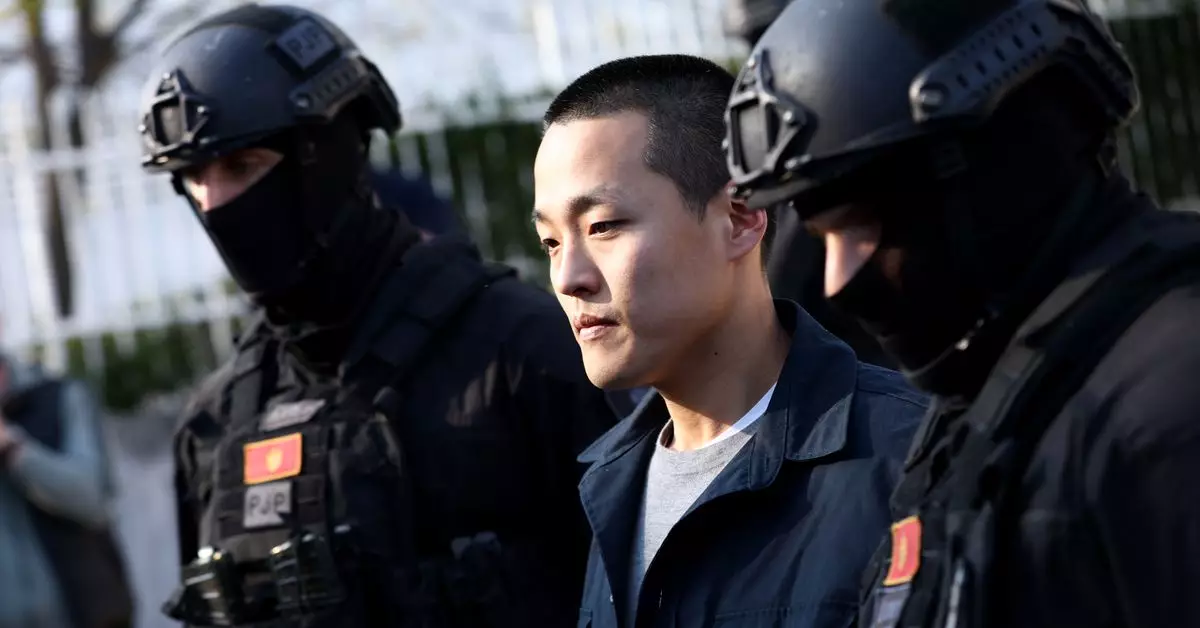In a striking development in the world of cryptocurrency, Do Kwon, the co-founder of Terraform Labs, is set to face an array of fraud charges in the United States. This announcement, made by the Montenegro Ministry of Justice, marks a pivotal moment in a saga that has seen billions lost and countless lives impacted following the 2022 crash of the TerraUSD stablecoin and its counterpart, Luna. The catastrophic failure of these tokens resulted in a staggering loss of approximately $40 billion, fundamentally shaking investor confidence and prompting a broader scrutiny of the cryptocurrency market.
Kwon’s journey to this point has been fraught with legal challenges and international negotiations. His arrest in Montenegro over a year ago was a significant moment, as it initiated a protracted battle over his extradition among South Korea and the United States—both of which seek to hold him accountable for the financial havoc unleashed by the collapse. As stated in Montenegro’s official announcement, there are compelling legal grounds to support the U.S.’s request, highlighting a systemic approach to international financial misconduct and accountability. While the exact timeline of Kwon’s extradition remains uncertain, this decision underscores the seriousness with which governments are beginning to treat the fraud occurring within the cryptocurrency space.
The extradition of Kwon is more than just a legal procedure; it embodies the potential for a cultural shift in how regulatory bodies approach digital currencies and their creators. The charges leveled against Kwon—including wire fraud, commodities fraud, and conspiracy—highlight the regulatory vacuum that has often existed in the cryptocurrency sector. As governments ramp up their scrutiny and regulation of digital assets, Kwon’s case could set a precedent for future enforcement actions, illustrating that with innovation in finance comes an expectation of responsibility and transparency.
Furthermore, this situation brings to the fore the impact of sensationalized market dynamics that can cause rapid fluctuations, leading to devastating outcomes for investors. The crash of TerraUSD and Luna serves as a cautionary tale for both investors and developers within the cryptocurrency ecosystem, emphasizing the need for due diligence, ethical conduct, and robust safeguards against fraud.
As Kwon faces charges, the broader crypto industry watches closely, not just for the outcome of his case but for the regulatory landscape that may emerge. The implications of this extradition could extend beyond Kwon, potentially inspiring stronger frameworks and initiatives aimed at protecting investors from the types of collapses that have become all too common in the unregulated digital asset market.
Ultimately, as cryptocurrency gains mainstream traction, the lessons from Kwon’s legal saga are crucial. Future innovations must incorporate stringent ethical guidelines and robust regulatory frameworks to foster a more secure financial environment and restore trust in digital currencies, safeguarding both investors and the integrity of the market.

